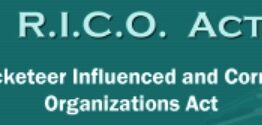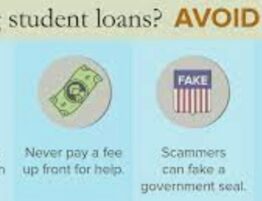New York Judge Refuses to Waive Collateralization for Debtors’ Bank Accounts
A large company in chapter 11 must ensure that its depository banks comply with Section 345(b), even if it means the bank charges the debtor $80,000 a month for providing a bond to collateralize the deposits, according to Bankruptcy Judge James L. Garrity, Jr. of New York.
The debtors constituted a major mortgage originator and servicer that filed a prepackaged chapter 11 petition in February intended for confirmation in August. The debtors’ operations utilized more than 1,000 bank accounts, including over 500 accounts at Citibank N.A. with aggregate daily balances of some $95 million.
Section 345(b) requires debtors to maintain their accounts at authorized depositories that are required to maintain collateral at the U.S. Treasury amounting to 115% of aggregate bankruptcy funds on deposit in excess of FDIC insurance limits. Or, the bank can obtain a surety bond.
Although Citibank is an authorized depository, the debtors discovered that the bank had not collateralized its accounts as required by Section 345(b). After negotiations, Citibank agreed to obtain a bond, at a monthly cost to the debtors of $80,000.
The debtors nonetheless filed a motion asking Judge Garrity to waive the requirement that the bank post security. In an opinion on June 24, Judge Garrity declined to grant the waiver and stuck the debtors with the $80,000 monthly cost.
Judge Garrity explained that Congress amended Section 345(b) in 1994 by allowing the court to waive the security requirement “for cause.” He analyzed In re Service Merchandise Co., Inc., 240 B.R. 894 (Bankr. M.D. Tenn. 1999), where the court found cause for waiving the collateral requirement based on 10 factors.
Related Stories
April 9, 2024
Title: The Alarming Rise of Identity Theft: A 2024 Perspective In recent years, the threat…
July 27, 2022
IRS Fresh Start Initiative Program, resolving IRS tax debts. Do You Need a Fresh Start…
June 9, 2022
IRS First Time Penalty Abatement – FTA The first-time penalty abatement (FTA) waiver is an…
March 26, 2022
If you filed a chapter 7 bankruptcy, look into filling IRS form 982 When you…
Posted in: Debt & Bankruptcy
March 26, 2022
DID SOMEONE FILE FOR UNEMPLOYMENT BENEFITS UNDER YOUR NAME? If you discover that someone has…
February 3, 2022
RICO suit, McKinsey In a decision last week, the Court of Appeals for the Second…
December 17, 2021
BEWARE OF USING MONEY FROM YOUR IRA OR 401(K) TO PAY DEBTS This can be…
Posted in: Debt & Bankruptcy
December 17, 2021
How to Spot Student Loan Scams. Things you can do to protect yourself. “Enroll now…
Posted in: Debt & Bankruptcy
April 9, 2024
Title: The Alarming Rise of Identity Theft: A 2024 Perspective In recent years, the threat…
July 27, 2022
IRS Fresh Start Initiative Program, resolving IRS tax debts. Do You Need a Fresh Start…
June 9, 2022
IRS First Time Penalty Abatement – FTA The first-time penalty abatement (FTA) waiver is an…
March 26, 2022
If you filed a chapter 7 bankruptcy, look into filling IRS form 982 When you…
Posted in: Debt & Bankruptcy
March 26, 2022
DID SOMEONE FILE FOR UNEMPLOYMENT BENEFITS UNDER YOUR NAME? If you discover that someone has…
February 3, 2022
RICO suit, McKinsey In a decision last week, the Court of Appeals for the Second…
December 17, 2021
BEWARE OF USING MONEY FROM YOUR IRA OR 401(K) TO PAY DEBTS This can be…
Posted in: Debt & Bankruptcy
December 17, 2021
How to Spot Student Loan Scams. Things you can do to protect yourself. “Enroll now…
Posted in: Debt & Bankruptcy








